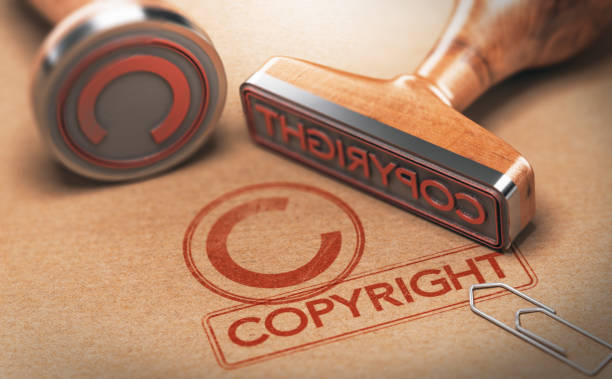What is a copyright?
Before we delve into how the amendment bill is going to change our copyright law in South Africa it is important to understand what rights copyright gives us.
On a very basic level, copyright is an intellectual property right that gives to the author or creator of a work, the right to stop other people from copying his work without the necessary permission. The work can be, for example, a dramatic, musical or artistic work.
A copyright automatically vests in the author without the need for prior registration. That said, the copyright owner must still ensure that he dates and signs each version of a work as evidentiary proof of authorship and consequently, ownership, should such proof become necessary sometime in the future.
By ensuring that the author’s work has legal protection, the author is then incentivised to create more, which grows the creative industry and ultimately benefits society.
Why the need for amendments to the Copyright Act?
Our current copyright act is a product of one of the many legislative constructs that were largely influenced by British laws, as its former colony. Taking into consideration that the Copyright Act of 1978 was passed during the height of racial segregation and enacted during a time where the current technological advances could not have been anticipated, it fails to address modern-day issues in copyright use and regulation. Consequently, the Act was declared unconstitutional.
It is for this reason that the legislator found it necessary to amend the current Act to align it with the fourth industrial revolution in the digital age of the 21st century, and assimilate it with progressive copyright laws in practice worldwide.
Why should the Copyright Amendment Bill matter to me?
Intellectual property is deeply embedded into our daily lives and more people are actually copyright holders than they would realise. Every one of us at some stage during our lifetime would have created an original kind of work that was inspired creatively. Remember your art class drawings in third grade or that picture you just uploaded of yourself on Instagram or Facebook? Well, you have a copyright in that because it qualifies as artistic works automatically.
What separates the parties invested in this fact is the element of benefiting economically from the said creative expression, and this is particularly why the amended Act matters, as it regulates the function of copyright laws in our country.
Here are a few critical features of the Copyright Amendment Bill versus the Copyright Act:
Remuneration for creators of works
The Copyright Act made no provision for the right to remuneration to authors and this process was left entirely to parties. This meant that authors and interested parties negotiating terms were vulnerable to concluding detrimental agreements that were not in the interest of the author, and thus limited their potential earnings without proper legal remedies.
The Bill now introduces a section making it compulsory for all authors of literary, musical and visual artistic works to receive royalties on the exploitation of their works. This means that this right is enforceable whether or not the author has made the choice to receive such royalties, including instances where there has been any assignment (transfer of ownership) of the work in question.
This would then mean that even the successors to the copyright title, or any other subsequent assignments of the author, would qualify as beneficiaries for this benefit in respect of the works concerned.
Furthermore, the author cannot settle for a lump sum payment or a buy-out on the exploitation of their works but may only receive periodic payments of royalties. The restrictive nature of this provision clearly goes against the standard order of business in the relevant industries.
Advancing the rights of disabled persons
The Copyright Act of 1978 failed to include any exceptions for the conversion of books to blind-accessible formats and this is particularly why persons with disabilities are severely affected by the prejudice in the delay of the Bill’s enactment into law.
The Bill now introduces Section 19D which provides for an exception to the author’s exclusive rights in favour of persons with visual disability. This was intended to mitigate the effects of the exclusive rights under the copyright of authors of literary works, by allowing those works to be reproduced in and adapted for disability utility format without the owner’s authority in certain circumstances.
Fair use doctrine
The Bill introduces the adoption of the fair use doctrine which originates from the United States of America (USA) and allows for the use of work within a limited period of time without obtaining the necessary permission from the copyright holder.
Through our Copyright Act, the legislature considers what works should be available for use outside the constraints of copyright restrictions in the interest of the public. The purposes that give rise to this exception include but are not limited to criticism, parody, education or research provided that what you do with the work is fair.
This is tested by applying “fair dealing” as a defence for infringement in work, which is only applicable in exceptional circumstances with carefully considered limitations.
The critique levelled against the Bill is the fact that the implementation of this doctrine in our country does not wholly apply the checks and balances applied in the USA, where the doctrine originates, for its successful practical application.
The existence of digital rights
It is no secret that social media, through the power of the internet, has birthed new age digital businesses and products which impact the creation and protection of copyright laws that affect authors and originators alike.
The Bill now recognizes the existence of digital rights and aims to modernise legislative functions that reflect and address the needs of creators and authors in the digital space. It further extends these rights to computer programs and published editions by the rightful copyright holder. This means that an infringement of digital rights will result in one being guilty of an offense that is punishable by law.
The future of copyright in South Africa
With record high levels of unemployment, turbulent markets and post-pandemic adjusted living in South Africa, now is the perfect time to introduce systems and regulations that create more opportunities for creators and creatives to thrive and survive these unprecedented times we find ourselves living in. This is achievable through intellectual property instruments such as the amended Copyright Act.
Ultimately, the goal here should be to establish an environment where a fair and balanced approach is applied that stimulates the expression of creative works to increase multiple streams of income for all parties involved in the economy created by intellectual property.
Artists are often vulnerable and susceptible to entering agreements that are to their detriment, and having progressive laws that correspond with the evolution of technology can make this a winning recipe for all. Although the law cannot by virtue of enactment guarantee prosperity through legislation, the amended Act can still be a powerful piece in the matrix of a successful innovating ecosystem
Always remember to consult a qualified intellectual property attorney to guide you through these changes so you can take full advantage in exploiting your works.
Article written for Taberer Attorneys Inc by Fedile Chichi Phadi
© Taberer Attorneys Inc

